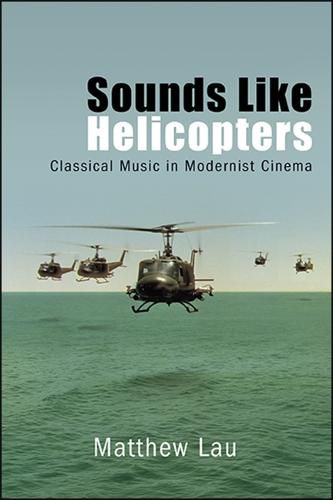Readings Newsletter
Become a Readings Member to make your shopping experience even easier.
Sign in or sign up for free!
You’re not far away from qualifying for FREE standard shipping within Australia
You’ve qualified for FREE standard shipping within Australia
The cart is loading…






This title is printed to order. This book may have been self-published. If so, we cannot guarantee the quality of the content. In the main most books will have gone through the editing process however some may not. We therefore suggest that you be aware of this before ordering this book. If in doubt check either the author or publisher’s details as we are unable to accept any returns unless they are faulty. Please contact us if you have any questions.
Classical music masterworks have long played a key supporting role in the movies-silent films were often accompanied by a pianist or even a full orchestra playing classical or theatrical repertory music-yet the complexity of this role has thus far been underappreciated. Sounds Like Helicopters corrects this oversight through close interpretations of classical music works in key modernist films by Francis Ford Coppola, Werner Herzog, Luis Bunuel, Stanley Kubrick, Jean-Luc Godard, Michael Haneke, and Terrence Malick. Beginning with the famous example of Wagner’s Ride of the Valkyries in Apocalypse Now, Matthew Lau demonstrates that there is a significant continuity between classical music and modernist cinema that belies their seemingly ironic juxtaposition. Though often regarded as a stuffy, conservative art form, classical music has a venerable avant-garde tradition, and key films by important directors show that modernist cinema restores the original subversive energy of these classical masterworks. These films, Lau argues, remind us of what this music sounded like when it was still new and difficult; they remind us that great music remains new music. The pattern of reliance on classical music by modernist directors suggests it is not enough to watch modernist cinema: one must listen to its music to sense its prehistory, its history, and its obscure, prophetic future.
$9.00 standard shipping within Australia
FREE standard shipping within Australia for orders over $100.00
Express & International shipping calculated at checkout
This title is printed to order. This book may have been self-published. If so, we cannot guarantee the quality of the content. In the main most books will have gone through the editing process however some may not. We therefore suggest that you be aware of this before ordering this book. If in doubt check either the author or publisher’s details as we are unable to accept any returns unless they are faulty. Please contact us if you have any questions.
Classical music masterworks have long played a key supporting role in the movies-silent films were often accompanied by a pianist or even a full orchestra playing classical or theatrical repertory music-yet the complexity of this role has thus far been underappreciated. Sounds Like Helicopters corrects this oversight through close interpretations of classical music works in key modernist films by Francis Ford Coppola, Werner Herzog, Luis Bunuel, Stanley Kubrick, Jean-Luc Godard, Michael Haneke, and Terrence Malick. Beginning with the famous example of Wagner’s Ride of the Valkyries in Apocalypse Now, Matthew Lau demonstrates that there is a significant continuity between classical music and modernist cinema that belies their seemingly ironic juxtaposition. Though often regarded as a stuffy, conservative art form, classical music has a venerable avant-garde tradition, and key films by important directors show that modernist cinema restores the original subversive energy of these classical masterworks. These films, Lau argues, remind us of what this music sounded like when it was still new and difficult; they remind us that great music remains new music. The pattern of reliance on classical music by modernist directors suggests it is not enough to watch modernist cinema: one must listen to its music to sense its prehistory, its history, and its obscure, prophetic future.